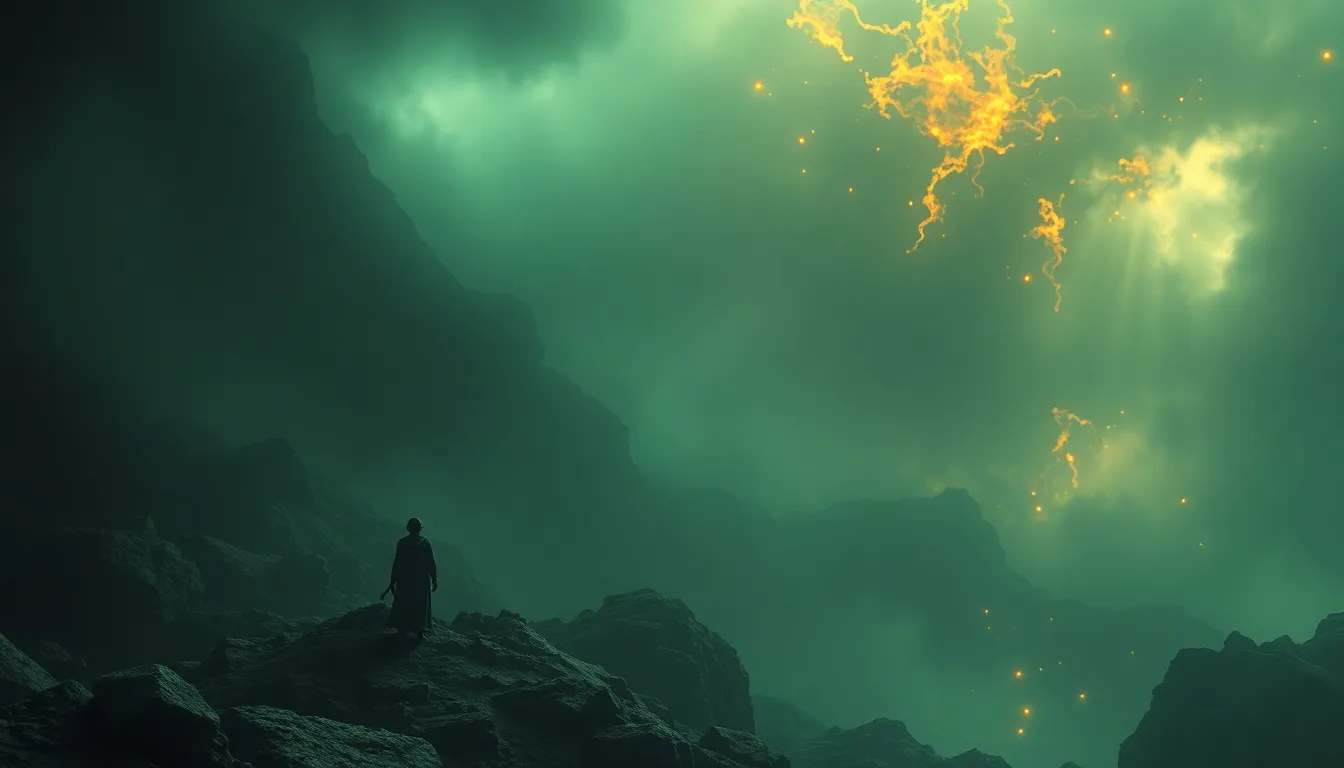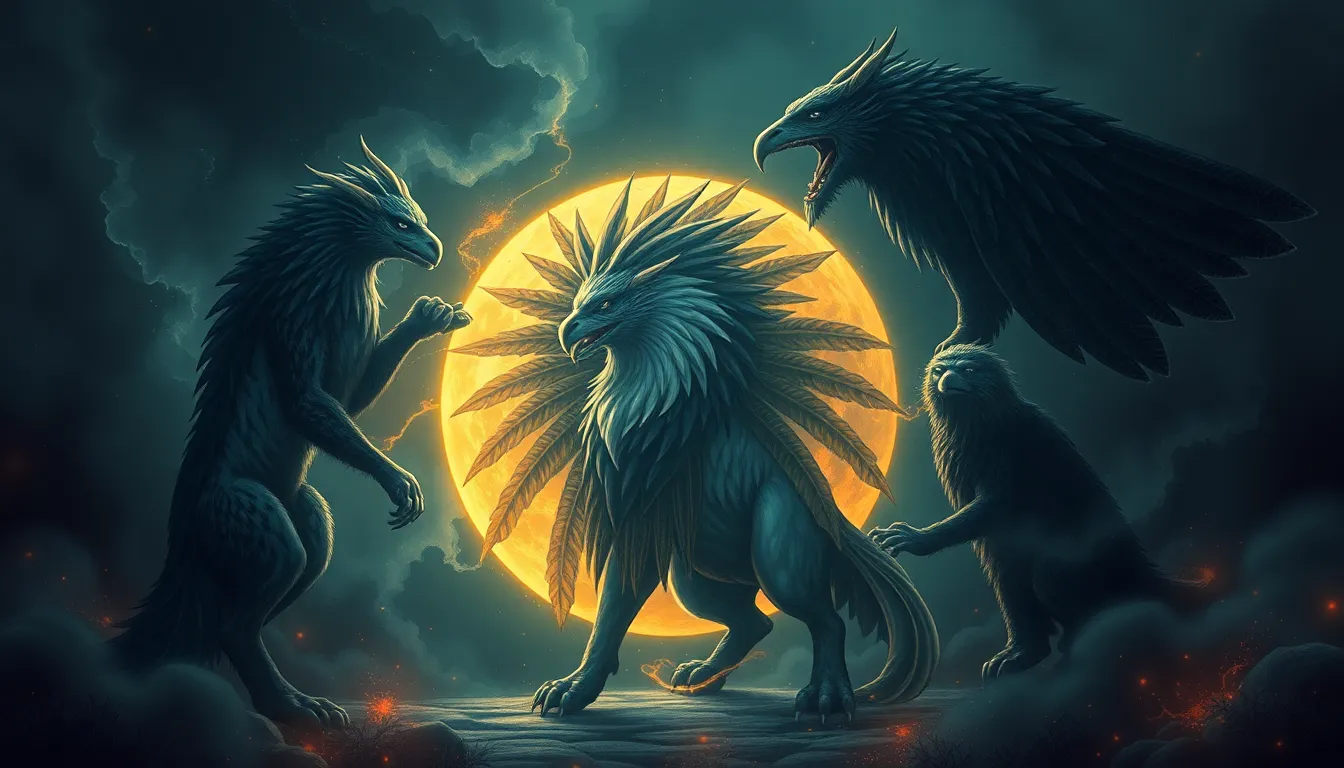Cultural Heroes: The Myths That Shape Our World
I. Introduction
Cultural heroes are figures who embody the values, struggles, and aspirations of a society. They serve as inspirational symbols, often portrayed in myths and stories that transcend time and geography. These heroes can be historical figures, fictional characters, or even everyday individuals whose acts of bravery or sacrifice resonate with broader cultural narratives.
Myths play a crucial role in shaping society by providing frameworks for understanding the world. They offer moral and ethical guidance, foster community, and help individuals navigate complex social landscapes. This article will explore the significance of cultural heroes, the myths surrounding them, and how these narratives evolve and impact our identities.
II. The Role of Myths in Human Culture
A. Historical Perspective on Myths
Myths have been integral to human culture since the dawn of civilization. From ancient Greece’s tales of gods and heroes to the folklore of indigenous peoples, myths have provided explanations for natural phenomena, cultural practices, and human experiences. They serve as a collective memory, preserving the values and lessons of past generations.
B. Myths as Tools for Moral and Ethical Guidance
Myths often convey moral lessons that guide behavior within a society. They illustrate virtues such as bravery, honesty, and compassion, while also warning against vices like greed and betrayal. For instance:
- The story of King Midas teaches the dangers of greed.
- The tale of the Good Samaritan emphasizes the importance of helping others.
These narratives shape societal norms and expectations, influencing how individuals interact with one another.
C. Myths and Their Connection to Identity
Myths contribute significantly to cultural identity. They create a shared narrative that binds individuals to their community, fostering a sense of belonging. Cultural heroes often embody these myths, representing ideals that people aspire to achieve.
III. Characteristics of Cultural Heroes
A. Traits of a Hero: Courage, Sacrifice, and Wisdom
Cultural heroes typically possess traits that set them apart from ordinary individuals. Common characteristics include:
- Courage: The willingness to face danger or adversity.
- Sacrifice: The ability to put others’ needs above their own.
- Wisdom: Knowledge and insight that guide decisions and actions.
These traits inspire admiration and serve as benchmarks for individuals within a society.
B. The Journey of a Hero: Archetypal Patterns
Many heroes follow a similar narrative arc, often referred to as the “Hero’s Journey.” This pattern typically includes stages such as:
- The Call to Adventure
- Facing Trials and Tribulations
- Achieving a Great Victory
- The Return Home Transformed
This archetype resonates across cultures and highlights the universal nature of the hero’s journey.
C. The Duality of Heroes: Flaws and Redemption
While cultural heroes are often idealized, they also possess flaws that make them relatable. This duality allows for narratives of redemption, illustrating that even the greatest heroes can struggle and learn from their mistakes. Acknowledging their imperfections can foster a more nuanced understanding of heroism.
IV. Case Studies of Prominent Cultural Heroes
A. Historical Figures: Nelson Mandela and Mahatma Gandhi
Figures like Nelson Mandela and Mahatma Gandhi exemplify cultural heroism through their dedication to justice and peace. Mandela’s fight against apartheid and Gandhi’s philosophy of non-violence have inspired countless movements for social change worldwide.
B. Fictional Heroes: Superman and Harry Potter
In literature and film, characters like Superman and Harry Potter embody the ideals of courage and selflessness. They engage in battles against evil while also navigating personal struggles, making their journeys resonate with audiences of all ages.
C. Indigenous Heroes: Figures from Native American and Aboriginal Cultures
Indigenous cultures also celebrate heroes who have profoundly impacted their communities. Figures such as Tecumseh or Nanabozho serve as cultural touchstones, embodying the values and teachings of their respective traditions.
V. The Evolution of Cultural Heroes in Modern Society
A. Impact of Technology on Hero Narratives
The rise of technology, particularly the internet and social media, has transformed how hero narratives are created and shared. Information spreads rapidly, allowing new heroes to emerge and gain recognition almost instantaneously.
B. Changing Ideals: From Traditional to Contemporary Heroes
The characteristics of heroes have evolved over time. Contemporary heroes often reflect diversity and inclusivity, addressing societal issues such as race, gender, and environmentalism. This shift allows for a broader spectrum of narratives that resonate with a more diverse audience.
C. The Role of Social Media in Elevating New Heroes
Social media platforms play a significant role in shaping modern hero narratives. Activists and everyday individuals can share their stories, inspiring others and fostering movements that challenge the status quo. Hashtags and viral campaigns often elevate these new heroes, providing them with a platform to effect change.
VI. Myths and Their Impact on Cultural Identity
A. How Myths Foster Community and Belonging
Shared myths create a sense of belonging within communities. They reinforce cultural values and allow individuals to connect over shared experiences and stories, fostering solidarity and unity.
B. Cultural Heroes as Symbols of National Pride
Cultural heroes often serve as symbols of national pride, embodying the ideals and aspirations of a nation. Figures like Martin Luther King Jr. and Rosa Parks have come to symbolize the fight for civil rights in the United States, inspiring generations to continue the struggle for equality.
C. Myths in the Diaspora: Maintaining Identity in New Lands
For diasporic communities, myths and cultural heroes play a vital role in maintaining identity. They provide a connection to heritage and serve as reminders of cultural roots, helping individuals navigate the complexities of life in new environments.
VII. Critique of Cultural Hero Narratives
A. The Danger of Idolization: Heroes vs. Human Flaws
While cultural heroes can inspire, there is a danger in idolization. This can lead to unrealistic expectations and a failure to recognize the human flaws that exist within all individuals. Acknowledging these flaws is essential for a balanced perspective on heroism.
B. The Exclusion of Marginalized Voices in Hero Narratives
Traditional narratives often exclude marginalized voices, resulting in a limited understanding of heroism. It is crucial to include stories from diverse perspectives to create a more comprehensive view of cultural heroes.
C. Re-evaluating Heroes: The Importance of Context
Re-evaluating cultural heroes within their historical and social contexts allows for a more nuanced understanding of their actions and significance. This approach encourages critical thinking and promotes a deeper appreciation for the complexities of heroism.
VIII. The Future of Cultural Heroes
A. Emerging Narratives in a Globalized World
As the world becomes increasingly interconnected, new narratives are emerging that reflect global challenges and cultural exchanges. These narratives highlight the importance of collaboration and shared values in addressing issues such as climate change and social justice.
B. The Role of Diverse Perspectives in Shaping New Heroes
The inclusion of diverse perspectives in hero narratives is essential for creating a more equitable representation of heroism. This inclusivity helps to inspire a new generation of heroes who reflect the complexities of modern society.
C. Lessons from Myths: What Future Heroes Can Teach Us
Future heroes can learn valuable lessons from myths, such as the importance of resilience, empathy, and community. These lessons can guide individuals in their pursuit of positive change and inspire collective action.
IX. Conclusion
In summary, cultural heroes and the myths that surround them play a vital role in shaping our identities and values. They provide moral guidance, foster community, and inspire individuals to strive for greatness. As we continue to evolve in a rapidly changing world, recognizing and celebrating both traditional and contemporary heroes will remain essential.



